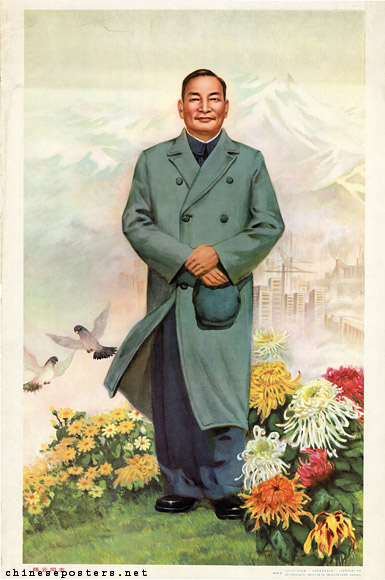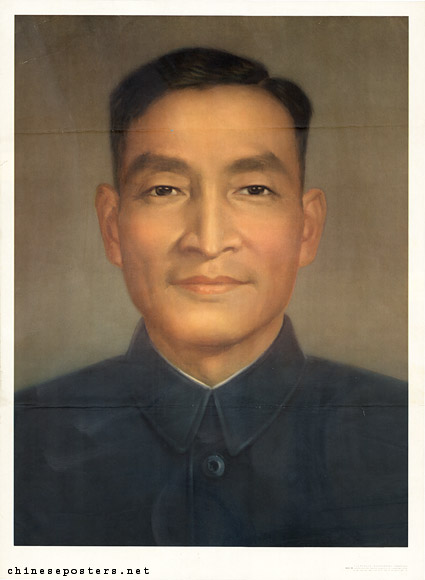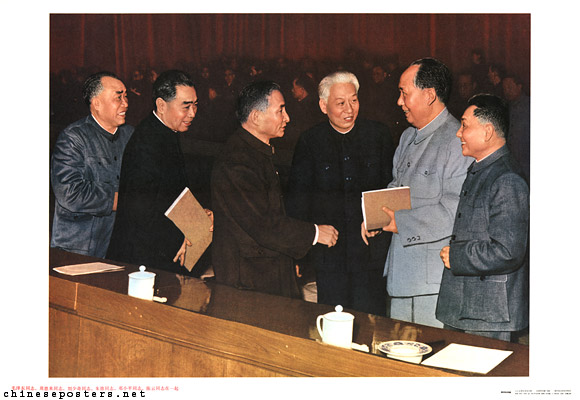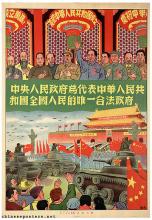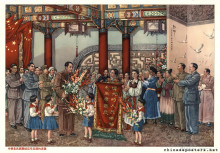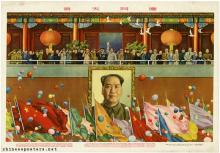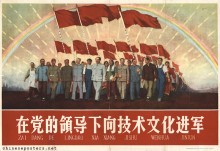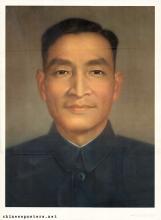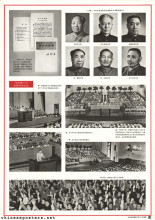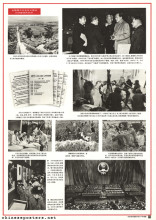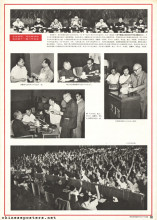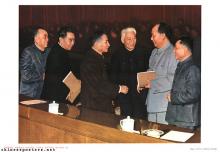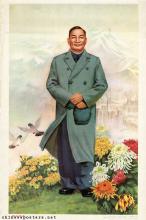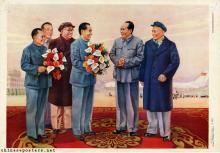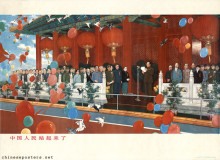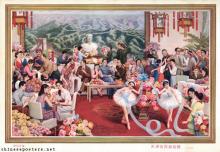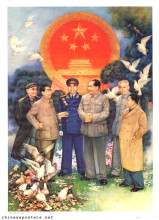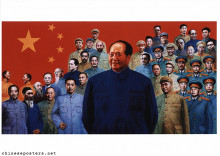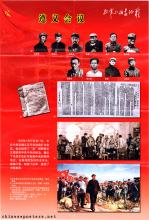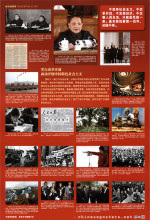Chen Yun (陈云, nom de guerre of Liao Chenyun, 1905-1995) can be considered as one of the most influential and powerful Chinese leaders, if only because he was at the center of decision-making for virtually the entire period of Communist Chinese history. He served on the Central Committee from 1931 to 1987, and on the Politburo for more than four decades. Having worked underground as a union organizer in the late 1920s, Chen joined the Long March (1934-1935). After a stint in Moscow, he returned to Yan’an in 1937, where he became active in the field of economics, despite the fact that he had had no formal education after elementary school.
After 1949, Chen served in various State and Party capacities: as Vice-Premier, Minister of Heavy Industry, and in the State Planning Committee. In 1957, Chen was one of the few leaders who dared to criticize Mao Zedong’s grandiose plans for the Great Leap Forward.
Although he was censured for this, he returned to the top in 1961, when he was called upon to lead the team that put the Chinese economy back on track. During the Cultural Revolution, he was criticized as a "capitalist" and was removed from all his posts except membership of the Central Committee.
Comrades Mao Zedong, Zhou Enlai, Liu Shaoqi, Zhu De, Deng Xiaoping and Chen Yun together, 1982
When Deng Xiaoping returned to power in 1977, Chen also resumed a major role. Where Deng became the architect for widespread economic reforms, Chen remained faithful to his old Marxist ideals, which served as an important brake on the pace of China’s development in the 1980s and early 1990s and forced Deng to compromise. Chen will probably be remembered best for his vision of a "bird-cage economy". In his opinion, the Chinese market should operate like a bird in a cage. This cage should not be too small, or the bird would suffocate. But the bird had to be contained by a cage, otherwise it would fly away. Although Chen formally retired in 1987, his influence on economic decision making remained considerable.
Wolfgang Bartke, Who was Who in the People’s Republic of China (München: K.G. Sauer, 1997)
Wolfgang Bartke, Biographical Dictionary and Analysis of China’s Party Leadership 1922-1988 (München: K.G. Sauer, 1990)
Donald W. Klein & Anne B. Clark, Biographic Dictionary of Chinese Communism (Cambridge, MASS: Harvard University Press, 1971)
Roderick MacFarquhar, The Origins of the Cultural Revolution, Volume I: Contradictions Among the People, 1956-1957 (Columbia University Press 1987)
Roderick MacFarquhar, Timothy Cheek, Eugene Wu (eds), The Secret Speeches of Chairman Mao - From the Hundred Flowers to the Great Leap Forward (Cambridge, etc.: Harvard University Press, 1989)
